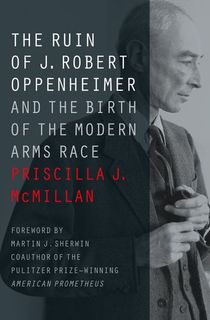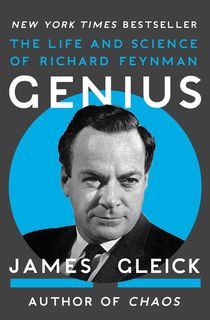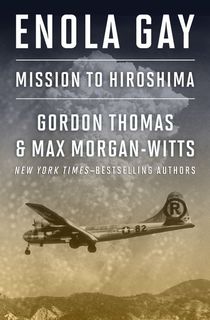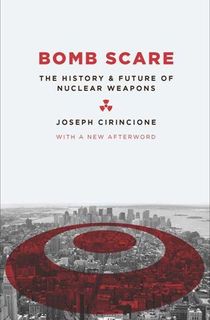The time has come for J. Robert Oppenheimer’s story to be told, and who better to tell it than one of the world’s greatest filmmakers, Christopher Nolan? Based on the Pulitzer Prize-winning biography American Prometheus, the film is to follow the brilliant and complex life of the renowned theoretical physicist J. Robert Oppenheimer, also known as the “father of the atomic bomb.” He was a key player in the Manhattan Project during World War II. But the film will be diving deeper into his life, beyond his invention that forever changed the world, and exploring his ties to the Communist Party and the investigation into his loyalty during the Red Scare.
In proper Nolan fashion, the director has enlisted half of Hollywood to bring Oppenheimer’s life to the big screen. Peaky Blinder's heartthrob Cillian Murphy will play Oppenheimer, alongside the star-studded supporting cast of Matt Damon, Florence Pugh, Robert Downey Jr., Jack Quaid, Rami Malek, Emily Blunt, and more. It is one of the most highly anticipated films this year and is set to release on July 21, 2023.
Before Oppenheimer graces theaters, here are some crucial nonfiction reads to get a bigger picture of the man himself, other key players, and the complexity around the atomic bomb and its catastrophic and devastating legacy.

American Prometheus
To kick off this list, we have the basis and inspiration for Christopher Nolan’s film. This biography explores J. Robert Oppenheimer’s extraordinary and sometimes very dark life. Authors Kai Bird and Martin J. Sherwin offer insights on Oppenheimer’s childhood, a detailed recount of the nuclear arms race, and an exploration of his possible affiliation with the Communist Party.
Full of morality tales and juicy gossip, this biography is highly engaging. And you won’t be able to put the book down once you reach the chapter describing Oppenheimer’s strange, secluded experiences on a small Caribbean island during the last years of his life.
Essays in Humanism
Albert Einstein’s intervention was key to the US developing nuclear weapons, but he viewed this role with some dismay. On the eve of World War II, he wrote a letter to President Roosevelt warning him of the possibility of Nazi Germany developing and using such weapons, which helped galvanize the Manhattan Project. Although a supporter of the Allies, Einstein was also a staunch pacifist. In this collection of essays, the great physicist reflects on and wrestles with great questions of his time regarding nuclear weapons, poverty, war, and more.

The Ruin of J. Robert Oppenheimer
On April 12, 1954, the nation was shocked to learn that America’s most famous scientist was facing accusations of being a traitor. Oppenheimer's leading efforts in making the atomic bomb and his resistance to the hydrogen bomb scored him many enemies—one of those being Edward Teller, a fierce defender of the hydrogen bomb. Teller considered anyone who spoke out against H bombs a traitor, and he and his allies went after Oppenheimer.
Priscilla J. McMillan tells the untold story of Oppenheimer’s trial, which took place mainly in secrecy. He was thrown out of the atomic regulatory agency he helped create and his name was disgraced and tainted by whispers of treason.

The General and the Genius
In the summer of 1945, two unlikely men joined forces to beat the Nazis to the creation of the atomic bomb. Army Corps Engineer Leslie Groves was appointed leader of the Manhattan Project and he brought on the nation's greatest theoretical physicist, J. Robert Oppenheimer.
The general and the visionary scientist worked in close collaboration for three years. They led a team of the world’s best physicists and engineers atop an isolated mountaintop lab, all dedicated to defeating Nazi Germany in the race for nuclear power.
At the heart of the Manhattan Project’s success story is the remarkable relationship that formed between Groves and Oppenheimer. Nolan has cast Matt Damon to play Groves, who will undoubtedly bring the character and his friendship with Oppenheimer to life.

Genius
This biography follows the remarkable life of physicist Richard Feynman. Before he had even finished his Ph.D., he was invited to join the Manhattan Project and worked directly under J. Robert Oppenheimer. With the nation's brightest minds, he designed and built the first nuclear weapon.
However, this was only the start of the young man's career. Discover how Feynman overcame setbacks, diversions, and faults to become one of the 20th century's greatest scientists. In Oppenheimer, Feynman is played by Amazon Prime’s The Boys breakout star Jack Quaid. Learn about Feynman's surprisingly large role in the Manhattan Project before it hits the big screen.

The Making of the Atomic Bomb
The atomic bomb changed the course of human history forever. Its origins date back to the 19th century, when nuclear fission was first discovered, and the debate around it continues well into the present day. America’s rivalry with the Axis powers launched the Manhattan Project and the scramble to build nuclear weapons. Its impact was felt by the tragic bombing and lasting destruction of Hiroshima and Nagasaki.
This compelling historical account brings into focus the physicists, politicians, and psychologists who played a role in the development of the bomb, including Oppenheimer. It reads like a suspense novel; every page is a thought-provoking and thrilling lesson in history.

Enola Gay
Investigative journalist Gordon Thomas and his writing partner Max Morgan-Witts chronicle the fateful mission of the Enola Gay, the aircraft that dropped the atomic bomb on Hiroshima. Starting with the inception of the Manhattan Project and the creation of the nuclear bomb, this page-turner gives a full coverage recount of the atomic age.
The book also goes into the rigorous training of the Enola Gay crew and the difficulties faced by pilot Paul Tibbets. Through interviews with surviving members of the crew and extensive research, no stone is left unturned. Uncover the legacy of the Manhattan Project and its effects on the war effort.

The Bastard Brigade
During the making of the atomic bomb, leaders of the Manhattan Project were shocked to learn that Nazi Germany was eclipsing them in nuclear weapons research. So, the Allies pulled together a mixed-bag team of scientists and spies to keep Hitler from succeeding. Dubbed the Alsos Mission, the group included Moe Berg, a spy and professional baseball catcher, Joseph P. Kennedy, the adventurous older brother of JFK, Nobel Prize-winning power couple Iréne and Frederic Joliot Curie, and others just as interesting.
The motley crew was sent into Axis territory to spy, sabotage, and even kill Nazis, anything to deny Hitler his atomic bomb. This unlikely team of physicists and soldiers worked tirelessly to ensure that the power of world destruction didn't end up in the wrong hands.

Spies in the Congo
Discover the untold story of one of the most close-kept secrets of World War II: America and Nazi Germany’s race to West Africa for an essential element for atomic bombs. This discovery started in 1939, when Albert Einstein told President Roosevelt that the world’s finest supply of uranium could be found in the bellows of Africa.
A team of Washington’s elite secret intelligence agents was tasked with protecting the uranium from German interference. Discover the true story of the team whose bravery led to the Manhattan Project and Oppenheimer’s atomic bomb.

Bomb Scare
Since the Manhattan Project, nuclear weapons have spread far and wide at shocking speeds. Although they have not been used in war since 1945, policymakers and citizens are wary they will return. In a concise and informed way, Joseph Cirincione surveys the complete arc of nuclear weapons, from their initial creation to an optimistic look at their future.
Cirincione unravels the science, rules, and politics that have influenced nations to hoard nuclear bombs and increase the chance of a nuclear terrorist attack. He also details how the Nuclear Non-Proliferation Treaty has kept the world in check for over 50 years. This is an educational and introspective read for anyone interested in the history and future influence of atomic bombs.
Featured still from "Oppenheimer" via Universal Pictures







